(Adopted on: July 2, 1998, amended on: July 23, 1999)
Chapter 1. General provisions
Article 1. Purposes of the law
1. This Law is intended for protection of rights and freedoms of citizens, assuring national security of the Republic of Kazakhstan against any threats emerging from corrupt practices, guaranteeing of effective operation of state agencies, officers and other persons that perform state functions, and also persons having equivalent status, by means of preventing, revealing, suppressing and detecting of corruption-related offences, remediation of consequences thereof and holding guilty persons liable; it also determines core principles of anticorruption efforts, sets categories of corruption related offences, and the conditions, upon which liability shall arise.
2. This Law is also intended for expansion of democratic principles, publicity and control over government of the state, strengthening of public credit towards the state and state structures, encouraging of qualified specialists to enter the state service, and creation of the environment that would promote probity of the persons exercising public functions.
Article 2. Basic concepts
1. In this Law, the corruption is understood as extralegal taking, either personally or via intermediaries, of property benefits and advantages by the persons who perform state functions and also persons having equivalent status, where these persons use their official powers and opportunities associated with such powers, or other use by them of their powers for gaining property benefits, as well as tampering of these persons by way of unlawful provision of the above benefits and advantages by individuals and legal entities to them.
2. The corruption-related offences (corruption offences) are the actions, as stipulated by this Law and other laws, which are conjugated with corruption or create conditions for corruption, and which entail disciplinary, administrative and criminal liability as prescribed by legislation.
3. State functions are the items of competence, which, in accordance with the Constitution and laws of the Republic of Kazakhstan, are referred to the powers of the state, its agencies and persons holding public posts.
3-1. Controlling and supervisory functions of state agencies are the functions carried out by the state agencies authorized under the legislation, aimed at ensuring the compliance with laws, detection and elimination of reasons and conditions of breaches of legislation, restoration of violated rights of citizens and legal entities, verification of accurate and unified application of regulatory and legal acts and fulfillment of mandatory requirements of regulatory acts in accordance with legislative acts of the Republic of Kazakhstan.
4. Officers are the persons who permanently, temporarily or under a special power exercise the functions of a representative of state or perform organizational and management, or administrative and operational functions at state agencies, agencies of local self-government, or Military Forces of the Republic of Kazakhstan, or other forces or military formations of the Republic of Kazakhstan.
5. Persons holding major state posts are the persons, who hold the posts set forth by the Constitution of the Republic of Kazakhstan, and/or constitutional and other laws of the Republic of Kazakhstan for direct performance of functions of the state and powers of state agencies.
Article 3. Corruption-related offenders
1. By virtue of this Law, the persons authorized to perform public functions and persons having equivalent status shall be liable for the corruption-related offences.
2. The persons authorized to perform public functions, include:
1) All officers, deputies of the Parliament and masticates, and judges;
2) All state servants in accordance with the legislation of the Republic of Kazakhstan on the state service.
3. The following persons shall have equivalent status to those persons who are authorized to perform public functions:
1) The persons elected to the agencies of local self-government;
2) the citizens registered, in the manner prescribed by law, as candidates for the posts of the President of the Republic of Kazakhstan, deputies of the Parliament of the Republic of Kazakhstan and masticates, and also members of elective agencies of local self-government;
3) The servants who work, either on permanent or temporary basis, in agencies of local self-government and are paid for work from the proceeds of the state budget of the Republic of Kazakhstan;
4) The persons performing management functions in the state organizations and in the organizations, whose charter capital contains a state-owned share of at least thirty five percent?
4. Corrupt offenders include also individuals and legal entities that tamper officers and other persons authorized to perform state functions or persons having equivalent status, as well as those providing unlawful property benefits and advantages to them.
Article 4. Application of the law
1. This Law shall apply over the entire territory of the Republic of Kazakhstan, to all individuals and legal entities. Outside the Republic of Kazakhstan, this Law shall apply to the citizens of the Republic of Kazakhstan and legal entities registered in the Republic of Kazakhstan, unless otherwise provided by an international treaty.
Refer to Letter No. YuD-2-1-13/3147 of the Ministry for Public Revenue of the Republic of Kazakhstan “Regarding the Issues of Submitting a Declaration”, dated 4 April 2002.
2. The legislation on the procedure for performance of certain public functions (governing the status of deputies of masticates and judges, the service of certain categories of state servants, and other potential corruption-related offenders) may set other rules of law providing for restrictions and prohibitions aimed at prevention of corruption.
Refer to, e.g.: Order No. 304 of the Ministry for Internal Affairs of the Republic of Kazakhstan “On the Measures for Preventing of Corruption in the Traffic Police Units of the Ministry for Internal Affairs of the Republic of Kazakhstan”, dated 2 September 1998.
3. Judges and deputies of the Parliament of the Republic of Kazakhstan shall be liable for committed corruption offences on the grounds and in the manner provided for by the Constitution and laws of the Republic of Kazakhstan.
4. Criminal liability and punishment, administrative liability and sanction for corruption-related crimes and administrative offences are contemplated by, respectively, the Criminal Code of the Republic of Kazakhstan and the Code of the Republic of Kazakhstan on Administrative Violation.
Article 5. Core principles of anticorruption efforts
Anticorruption efforts shall be based on the following principles:
1) Equality of everybody before the law and the court;
2) Ensuring the clear legal regulation of activity of state agencies, lawfulness and publicity of such activity, and state and public control over it;
3) Enhancement of the state machinery structure, personnel management and procedure for deciding upon the matters concerning rights and lawful interests of individuals and legal entities;
4) Priority of the protection of rights and lawful interests of individuals and legal entities, and also social and economic, political and legal, organizational and management systems of the state;
5) acknowledging that it is admissible to restrict rights and freedoms of officers and other persons authorized to perform public functions and also persons having equivalent status, in accordance with Article 39.1 of the Constitution of the Republic of Kazakhstan;
6) Restitution of violated rights and lawful interests of individuals and legal entities, remediation and prevention of harmful consequences of corruption offences;
7) Guaranteeing personal security of citizens who render assistance in efforts against corruption offences;
8) protection by the state of the rights and lawful interests of the persons authorized to perform state functions and persons having equivalent status, fixing of salary (remuneration) and allowances for these persons at the level providing for a fitting level of life for these persons and their families;
9) Inadmissibility of delegating the powers for state regulation of entrepreneurship activity to individuals and legal entities that engages in such activity or in control over it;
10) conducting criminal investigation activities and other activities with a view to revealing, detecting, suppressing and preventing of crimes related to corruption, and also applying, in the manner prescribed by law, of special financial control measures with a view to admitting no legalization of unlawfully gained money and other property;
11) Setting of a prohibition for the persons specified in paragraphs 1, 2 and 3 of Article 3 of this Law to engage in entrepreneurship activity, including a prohibition to hold remunerated positions with management bodies of business entities, unless the holding of such a position is provided for by statutorily established official duties.
Refer to Edict No. 534 of the President of the Republic of Kazakhstan “On the State Programmed for Anticorruption Efforts for 2001-2005”, dated 5 January 2001.
Article 6. Agencies performing anticorruption efforts
1. All state agencies and officers are obliged to carry on anticorruption efforts within the limits of their competence. Managers of state agencies, organizations and agencies of local self-government shall, within the limits of their powers, ensure that the requirements of this Law are complied with and that the disciplinary measures contemplated hereby are effected, by involving of personnel, controlling, legal and other services in this task.
Refer to Letter No. 11-2-7/2022 of the of the Committee of Registration Service of the Ministry of Justice of the Republic of Kazakhstan, dated 20 June 2002.
2. Revealing, suppressing and prevention of corruption offences and holding liable those who are guilty of such offences shall be carried out, within the limits of their competence, by the agencies of the prosecutor’s office, national security, internal affairs, tax, customs and frontier service, finance and military police.
3. The agencies referred to in paragraph 2 of this Article shall be obliged to take measures arising from their powers and immediately forward data on all cases of revealing of corruption-related crimes committed by persons holding major state posts, to the law statistics and information agencies.
The officers and agencies specified in paragraphs 1 and 2 of this Article are obliged to notify in writing, within the period prescribed by legislation, the person or agency that forwarded the case, information, protocol, representation on corruption-related crime or administrative offence, on the results of their review.
Refer to Order No. 48 of the General Prosecutor’s Office of the Republic of Kazakhstan dated 27 March 2001.
4. The President of the Republic of Kazakhstan shall have the right to form a state agency on anticorruption efforts and to determine its status and powers.
Refer also to the Rules on the Procedure for Conducting Inspections of Activity of State Agencies of the Republic of Kazakhstan in Terms of Compliance with the Public Service and Anticorruption Legislation, Standard Regulations governing Disciplinary Council of an Oblast, and Astana and Almay Cities.
Article 7. Safe conduct for the persons
Rendering Assistance in Anticorruption Efforts
1. A person who reported a fact of corruption offence or who otherwise renders assistance in anticorruption efforts shall be under protection by the state.
2. Information about a person who renders assistance in anticorruption efforts shall be state secret and may only be furnished upon requests of the agencies listed in paragraphs 2 and 4 of Article 6 of this Law, or a court in the manner prescribed by law. Disclosure of this information shall entail liability prescribed by law.
3. Where necessary, the agencies performing anticorruption efforts shall provide for personal security of the persons who render assistance in anticorruption efforts.
4. The rules of this Article do not apply to the persons giving knowingly false information, who shall be subject to liability in accordance with this Law.
Chapter 2. Preventing corruption,
Corruption Offences and Liability for Committing such Offences
Article 8. Special Requirement to the Persons Intending to Exercise Public Functions
1. The persons intending to exercise public functions or hold state posts with agencies and entities that are authorized to perform such functions, shall take upon themselves all restrictions established by this Law and other laws for the purpose of prevention of any actions, which may cause their status and personal renown based on such status to be used for personal, sectional and other unofficial interests, at which point the said persons shall be made aware of legal consequences of such actions.
2. Consent of the above persons to accept the restrictions shall be recorded by human resources services of the relevant agencies in writing. Where a person fails to accept the restrictions, this leads either to rejection in engaging that person for the performance of public functions or functions having equivalent status, or dismissal or another release of the performance of the specified functions in the manner prescribed by law.
Refer also to Resolution No. 157-r of the Prime Minister of the Republic of Kazakhstan “On the Measures for Formation of Databank on Subjects of Corruption Offences”, dated 19 August 1998, Instruction on the Keeping of Record of the Persons who Committed Corruption Offences and were held Administratively Liable.
Article 9. Financial control arrangements
1. The persons nominated for public offices or positions associated with the performance of public functions or functions having equivalent status, shall submit to a tax authority at the place of their residence:
– Income declaration;
– declaration of property that is subject to taxation, including property located outside the Republic of Kazakhstan, specifying estimated value and location of such property;
– Information on:
– deposits in banks and securities, including also those outside the Republic of Kazakhstan, specifying the banking institution, and information on financial proceeds, which these persons are entitled to dispose of, either personally or jointly with other persons;
– their direct or indirect interest as shareholders or founders (participants) of legal entities specifying the amount of participating interest in the charter capital and full bank details or other details of such organizations;
– trusts and countries, in which they are registered, specifying numbers of the relevant bank accounts, if a person or his/her spouse is a beneficiary of such trusts;
– names and details of other organizations, which have contractual relations, agreements or undertakings (including oral arrangements) with the persons for the maintenance or temporary safekeeping of material and financial means owned by that person or his/her spouse, in the amount exceeding one thousand times a monthly calculation index.
Refer to Letter No. NK-UMМ-07-1-18/2315 of the Tax Committee of the Ministry of Finance of the Republic of Kazakhstan, dated 26 March 2003, Letter No. NK-UM-07-3-18/2036 of the Tax Committee of the Ministry of Finance of the Republic of Kazakhstan “Regarding the Submission of Individual Income Tax Declaration “, dated 17 March 2003, Letter No. NK-UM-07-3-18/2014 of the Tax Committee of the Ministry of Finance of the Republic of Kazakhstan dated 15 March 2003 on lecturers of senior divisions, Letter No. YuD-2-12/2611 of the Ministry for Public Revenue stating that employees of health-care, educational institutions and State Centre for Payment of Pensions shall not submit declarations dated 23 March 2000.
2. The persons who hold state posts shall, annually during the term of their office, and the persons who were dismissed from state service on negative grounds, shall, during three years following their dismissal, submit declarations in the manner prescribed by tax legislation to the tax agency at the place of their residence.
Refer to Letter No. NK-YuU-18-3-18/2937 of the Tax Committee of the Ministry of Finance of the Republic of Kazakhstan dated 21 April 2003.
3. A spouse of the person specified in the first part of paragraphs 1 and 2 of this Article shall submit declarations on income and property being subject to taxation and located both within and outside the Republic of Kazakhstan to a tax agency at the place of his/her residence.
Refer to Letter No. 7-21-6-10-2001 of the General Prosecutor’s Office of the Republic of Kazakhstan “On Holding Administratively Liable the Spouses of Public Servants for Failure to submit or Untimely Submission of Tax Declarations on Aggregate Annual Income”, dated 19 March 2001.
4. The persons specified in paragraphs 1 and 2 of this Article shall submit, respectively, to the agency at which they claim to take a post, or to the current place of work, a certificate issued by a tax agency confirming that it has received declarations and information listed in paragraphs 1-3 of this Article.
5. Failure to submit or submission of incomplete and/or inaccurate declarations and information, as listed in this Article, by the persons specified in paragraphs 1 and 2 of this Article (except for threesomes dismissed from state service on negative grounds), where the committed act does not contain features of criminally prosecuted action, shall serve the basis for rejection to bestow the person with the relevant powers or entail dismissal or another release of him/her of the performance of public functions or functions having equivalent status, in the manner prescribed by law. Refer to administrative liability.
6. Act as is mentioned in paragraph 5 of this Article committed for the first time during three years following the release of persons from the performance of public functions or functions having equivalent status, shall be punished by a fine in the amount from fifty to one hundred monthly calculation indices, to be imposed by court in administrative manner upon presentation (protocols) of the agencies specified in paragraph 2 of Article 6 of this Law. Repeated commission of such acts during the said period shall be punished by a fine in the amount from one hundred to two hundred monthly calculation indices, to be imposed in the same manner.
7. In the manner prescribed by legislation, information on amounts and sources of income of officers holding major state posts and also information on income of candidates for elective state posts, when they are nominated, may be made open for public.
8. The persons authorized to perform state functions and persons having equivalent status shall be prohibited from entering into civil law transactions not under his/her own name, under front parties, anonymously, pseudonymously or otherwise. These transactions shall be invalidated in the manner prescribed by law.
9. Individuals and legal entities that participate in the performance of functions of state property management, shall submit reports on all transactions of property nature and all financial activities related to the state property, in the manner and on the dates set by the Government of the Republic of Kazakhstan, to a state agency that exercises legal powers of owner of the state property.
10. Information received by the tax agencies as stipulated in this Article constitutes official secret. Disclosure of such information, where the committed act does not contain features of a criminally prosecuted act, shall be punished by dismissal of the guilty person. This information shall only be provided upon requests of the agencies referred to in paragraphs 2 and 4 of Article 6 of this Law and in judicial procedure, as prescribed by law.
Refer to Letter No. YuD-2-13/4877 of the Ministry for Public Revenue of the Republic of Kazakhstan “On the Submission of State Servants’ Declarations upon Request of Law Enforcement Agencies “, dated 30 May 2000.
11. Financial control arrangements stipulated in this Article shall not apply to legal relations pertaining to acquisition of ownership of dwellings and construction materials for construction of dwellings in the Republic of Kazakhstan. Financial control at the point of acquisition of housing and construction materials for construction thereof shall be carried out in accordance with the legislation of the Republic of Kazakhstan.
Article 10. Activity incompatible with performance of public functions
1. Officers and other persons authorized to perform state functions and persons having equivalent status (except for deputies of masticates who carry on their activity not on a permanent or exempted basis, and also persons referred to in subparagraphs 2) and 4) of paragraph 3 of Article 3 of this Law) are prohibited from engaging in any other remunerated activity, other than pedagogical, scientific and other creative activity.
2. The persons specified in paragraph 1 of this Article shall be prohibited from engaging in entrepreneurship activity or participating in management of a business entity where management or participation in the management of a business entity does not fall within their official duties in accordance with legislation, and shall also be prohibited from promoting the satisfaction of material interests of entities or individuals through unlawful use of their powers for the purpose of gaining any material benefits.
3. The persons specified in paragraph 1 of this Article shall be obliged to transfer, within one month following the assumption of office, the property, which is owned by them and the use of which implies gaining of profit, except for money lawfully owned by these persons and other property transferred for property lease, to trust management for the period of performance of these official functions in the manner prescribed by the legislation of the Republic of Kazakhstan.
4. The persons referred to in paragraph 1 of this Article engaging in activity that is incompatible with the performance of these functions shall be dismissed or released otherwise from performance of the relevant functions in the manner prescribed by law. A person authorized to perform public functions or a person having equivalent status, released from the performance of the said functions on the grounds of engaging in activity incompatible with the performance of such functions may not be authorized to perform such functions again, until he/she ceases to be engaged in the activity specified in this Article.
Article 11. Inadmissibility of joint service of close relatives
1. Officers and other persons authorized to perform public functions and persons having equivalent status (except for the persons specified in subparagraph 4) of paragraph 3 of Article 3 of this Law), may not hold the positions, which are directly subordinated to the positions held by their close relatives (parents, children, adopted parents, adoptee, brothers and sisters of the whole and half blood, grandfathers, grandfathers, grandchildren) or spouses, unless otherwise provided by the legislation.
2. The persons who violate the requirements of paragraph 1 of this Article, if they fail to eliminate such violation voluntarily within three months following the time when such violation was found, shall be subject to transfer to the positions, which exclude such subordination. Where it is impossible to arrange for such a transfer, one of the servants shall be dismissed from his/her post or released otherwise of the said functions.
3. The persons dismissed on the grounds specified in paragraph 1 of this Article shall have the right to enter the public service or other service conjugated with the performance of public functions or functions having equivalent status, at other agencies or organizations.
Refer to Order No. 68 of the General Prosecutor’s Office of the Republic of Kazakhstan on Arranging of Prosecutor’s Office Supervision over the Application of the Law “On Anticorruption Efforts”, dated 24 April 2001.
Article 12. Corruption contributing offences and liability for committing such offences
1. The corruption contributing offences shall include the following acts of persons authorized to perform public functions or persons having equivalent status:
1) Unlawful interference in activity of other state agencies and/or organizations;
2) Using their official powers when settling issues associated with satisfaction of material interests of the said persons or their close relatives and relatives’ in-law or by marriage;
3) Provision of extralegal advantages (protectionism, nepotism) when entering and advancing at public service or service having equivalent status;
4) Giving unlawful preference to legal entities and individuals when preparing and making decisions;
5) Rendering any extralegal assistance to whomsoever in the carrying on of entrepreneurship activity or other business associated with gaining of profit;
6) use for personal or sectional interests of any information obtained in the course of performing the state functions, if such information is not subject to official distribution;
7) Unreasonably withheld provision of information to individuals and legal entities, which information is required to be provided to them in accordance with legislation; delaying, transferring incomplete or inaccurate information;
8) Requesting that individuals or legal entities submit information, which is not required to be submitted by these persons in accordance with legislation?
9) transfer of state financial and material resources to elective funds of certain candidates or public associations;
10) Recurring violation of the procedure set by law for consideration of applications filed by individuals and legal entities and for making decisions on the issues falling within their competence;
11) Giving presents and rendering unofficial services to senior officers, except for symbolic courtesies and symbolic souvenirs given in accordance with generally accepted norms of comity and hospitability, and also in the course of protocol and other official arrangements;
12) express hindering individuals or legal entities in exercising their rights and lawful interests;
13) Delegation of powers for state regulation of entrepreneurship activity to individuals or legal entities that engage in such activity or in control over it; and
13-1) transfer of the state controlling and supervisory functions to entities, which have no status of a state agency;
Refer to Decree No. 1225 of the Government of the Republic of Kazakhstan “Certain Issues of State Regulation and Control over Entrepreneurship Activity in the Republic of Kazakhstan”, dated 23 August 1999.
14) Participation in gambling of monetary or other property nature with senior, junior officers or officers being in any other dependence with them in terms of work or service.
2. Committing by persons authorized to exercise public functions or persons having equivalent status, of any of the offences specified in paragraph 1 of this Article, where the committed act does not contain features of a criminally prosecuted act, shall entail demotion, dismissal or another release of the performance of public functions or imposition, in the manner prescribed by law, of another disciplinary sanction.
Repeated commission of any of the specified offences during a year after the disciplinary sanction had been applied for the first offence shall entail dismissal or other release of the performance of the public functions in the manner prescribed by law.
3. In the event that deputies of the Parliament of the Republic of Kazakhstan or persons specified in subparagraph 2) paragraph 3 of Article 3 of this Law, commit any of the offences as is mentioned in paragraph 1 of this Article, the anticorruption agencies shall notify the relevant election commission to this effect, and the election commission shall be obliged to make the Parliament aware of this within five days following the receipt by it of such information.
Article 13. Corruption offences involving unlawful receipt of benefits and advantages
1. The following acts of persons authorized to exercise public functions, or persons having equivalent status, shall be regarded as corruption offences involving unlawful receipt of benefits and advantages:
1) accepting any remuneration in the form of money, services and in any other forms from entities, in which that person performs no relevant functions, as well as from physical persons for performance of their public duties or similar functions, unless otherwise provided for by legislation. Money received into an account of a person authorized to exercise public functions, or persons having equivalent status, without such person’s knowledge, as well as money received by such person in connection with performance by him/her of certain functions in violation of the first part of this subparagraph shall be transferred to the republican budget within at least two weeks after they have been discovered, and explanations shall be made to the relevant tax authorities as to circumstances under which such money were received;
2) Accepting gifts or services in connection with performance of the public duties, or similar functions, from subordinates, except for accepting little small gifts or souvenirs as a token of attention or appreciation in accordance with the generally acceptable rules of courtesy and hospitality, or during protocol and other official events. Gifts received without knowledge of such person as well as gifts received by such person in connection with the performance of relevant functions in violation of the first part of this subparagraph, shall be handed over, without compensation, within seven days of their receipt, to a special state fund, and the services rendered under the same circumstances to a person must be paid for by such person by wire transfer of money to the republican budget. A person that received a gift shall have the right to obtain consent of the higher official person to purchase such gift from the special state fund at the market retail price applicable in the relevant area. The special state fund shall transfer all money that it received from selling gifts to the republican budget.
Refer to Letter No. 04-01-01-14/110I from the Agency of the Republic of Kazakhstan for Matters relating to the Public Service, dated 21 March 2003.
3) acceptance of invitations to travel abroad for tourist or medical and recreation or other purposes at the expenses of physical persons and legal entities, either foreign or national, except for the following trips:
If invited by a spouse or relatives at their expense;
If invited by other physical persons (with the consent of the higher officer or body) where relations with them do not affect the official activities of the invitees;
if a trip is organized in accordance with international treaties of the Republic of Kazakhstan or by a mutual agreement between the state agencies of the Republic of Kazakhstan and the state bodies of foreign states at the expense of the relevant state agencies and/or international organizations; if a trip is made with the consent of the higher public officer or agency for the purpose of participating in scientific, sport, creative, professional, humanitarian events at the expense of funds of the organizations, including if a trip is conducted pursuant to the charter of such organizations;
4) Enjoying extralegal advantages when receiving loans, credits, purchasing securities, immovable or any other property.
2. Family members of a person who is authorized to perform public functions, or persons having equivalent status,



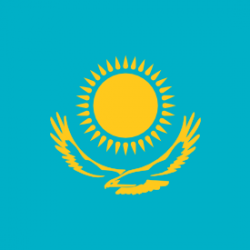
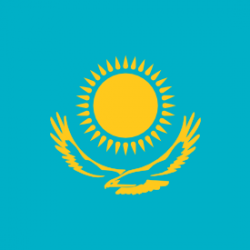
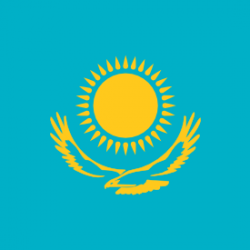
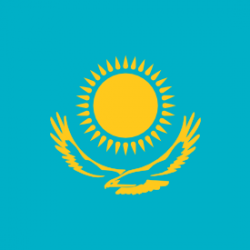
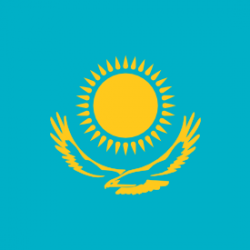
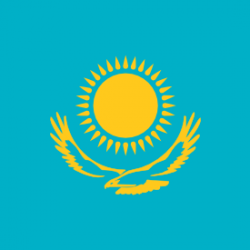
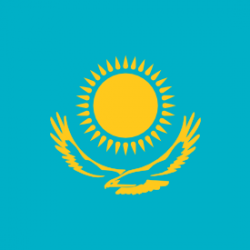
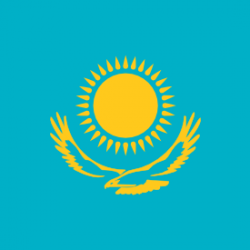
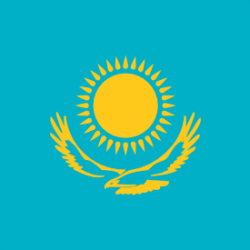
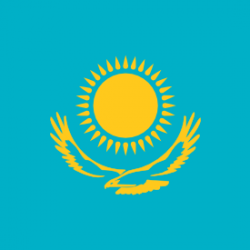
 We will not leak your personal information
We will not leak your personal information